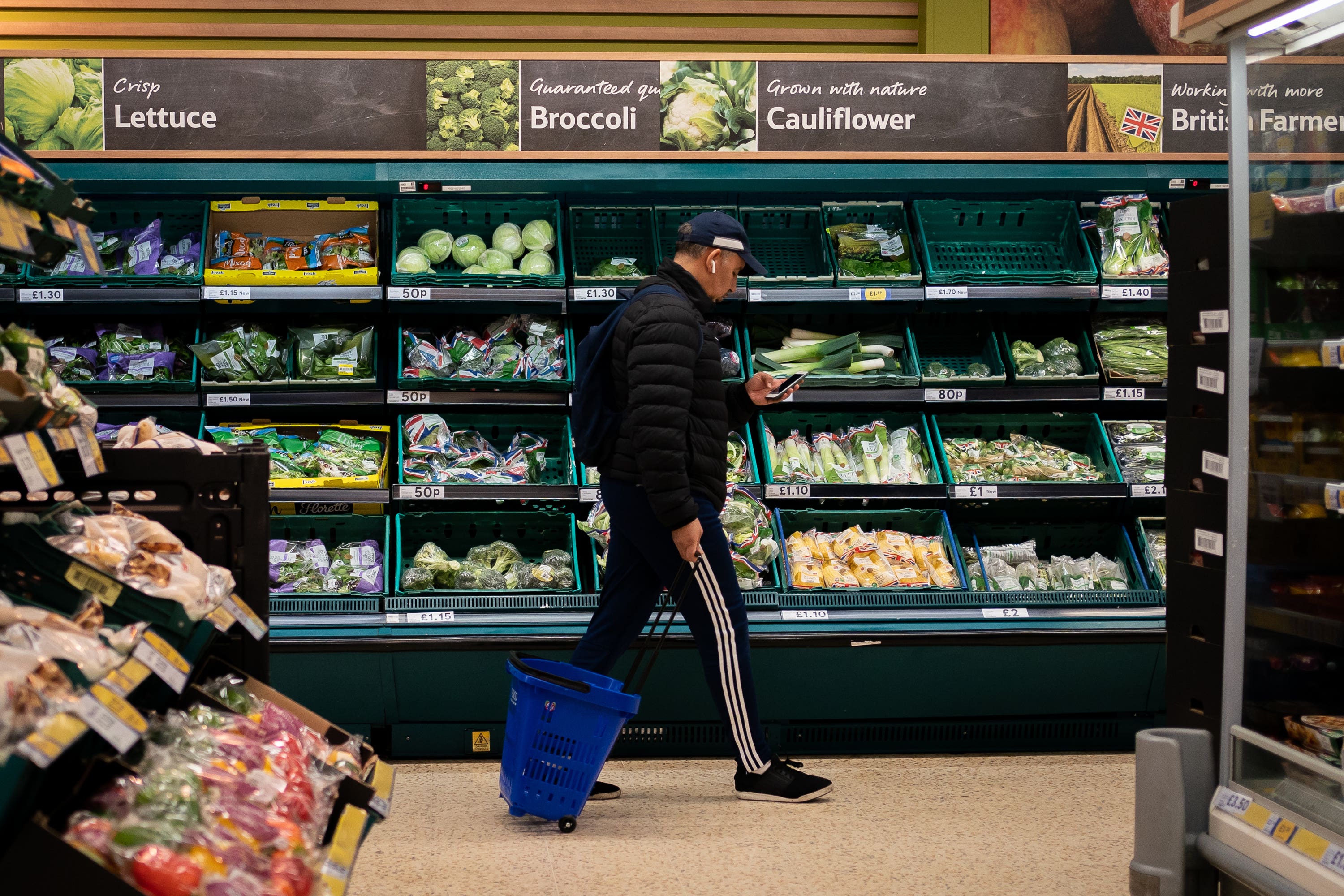Grocery price inflation rises to record 16.7% – Kantar
The 2.3 percentage point jump in the four weeks to January 22 exceeded the previous high.

Your support helps us to tell the story
From reproductive rights to climate change to Big Tech, The Independent is on the ground when the story is developing. Whether it's investigating the financials of Elon Musk's pro-Trump PAC or producing our latest documentary, 'The A Word', which shines a light on the American women fighting for reproductive rights, we know how important it is to parse out the facts from the messaging.
At such a critical moment in US history, we need reporters on the ground. Your donation allows us to keep sending journalists to speak to both sides of the story.
The Independent is trusted by Americans across the entire political spectrum. And unlike many other quality news outlets, we choose not to lock Americans out of our reporting and analysis with paywalls. We believe quality journalism should be available to everyone, paid for by those who can afford it.
Your support makes all the difference.Grocery price inflation has hit a record 16.7% to add a potential £788 to annual shopping bills, figures have shown.
The “staggering” 2.3 percentage point jump in the four weeks to January 22 has exceeded the previous high recorded by analysts Kantar in October and is the highest figure since their records began in 2008.
Intense competition among grocers striving to retain customers saw them boosting their own-label ranges, with sales of these growing by 9.3% in January – well ahead of branded alternatives, which were up by just 1%.
Despite price rises, consumers appear to have maintained New Year’s resolutions and a commitment to Dry January, with sales volumes of no and low alcohol beer up 3% on last year.
Households will now face an extra £788 on their annual shopping bills if they don’t change their behaviour to cut costs
Overall take-home grocery sales rose by 5.7% during the four-week period and by 7.6% over the quarter.
Fraser McKevitt, head of retail and consumer insight at Kantar, said: “Late last year, we saw the rate of grocery price inflation dip slightly, but that small sign of relief for consumers has been short-lived.
“Households will now face an extra £788 on their annual shopping bills if they don’t change their behaviour to cut costs.
“Across the market the move is towards everyday low pricing, with many supermarkets offering price matching and using their loyalty schemes to help shoppers save.
“As a result of this push, the proportion of spending on promotions has dropped to its lowest level since at least 2008 this month, exaggerating the usual post-Christmas drop off in deals.”
Aldi was the fastest-growing grocer for the fourth month in a row, with sales up 26.9% year on year and now holding 9.2% of the market. Lidl’s sales jumped by 24.1% to give it a 7.1% market share.
Among the three largest grocers, Sainsbury’s sales increased by 6.1%, just 0.1 percentage points higher than Asda and Tesco, to give it 15.4% of the market.
Tesco remains the largest British retailer with a 27.5% market share while Asda holds 14.2%.